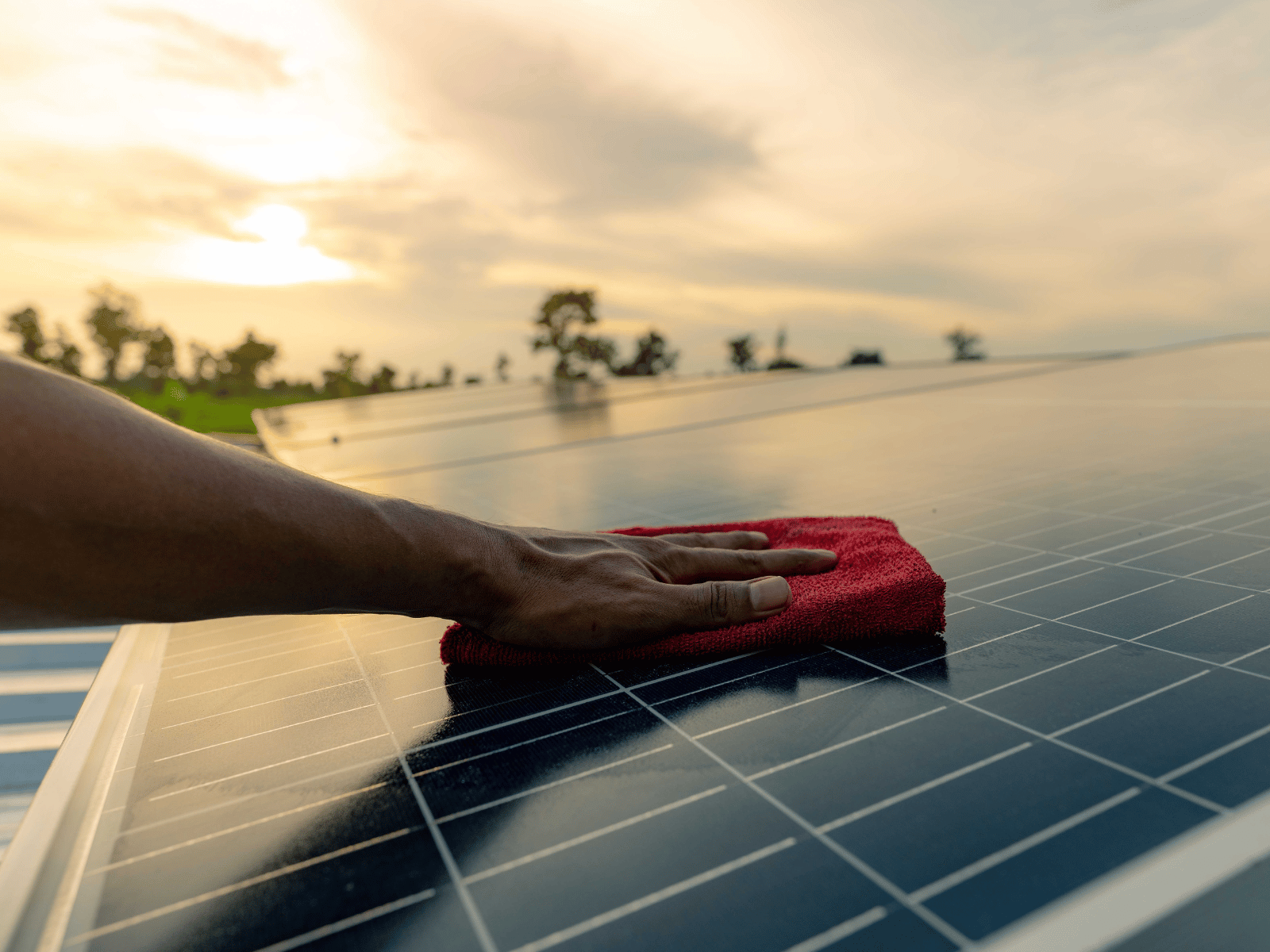Frequently Asked Questions
Most frequent questions and answers ABOUT Solar Cleaning
These FAQs provide general information about cleaning and maintaining solar panels.
For specific questions about your solar system, consult with us directly.
Solar panels can accumulate dirt, dust, bird droppings, and other debris, reducing their efficiency. Regular cleaning ensures optimal energy production.
Cleaning frequency depends on your location and environmental factors. In general, a bi-yearly cleaning is recommended, but areas with more dust or pollution may require more frequent cleaning.
While it’s possible to clean your panels yourself, it’s often safer and more effective to hire professionals who have the right equipment and expertise to do the job safely and efficiently.
The best time to clean solar panels is in the early morning or late afternoon when they are cool. Avoid cleaning them in direct sunlight as it can cause streaks.
Use a mild, non-abrasive detergent mixed with water and a soft brush or sponge. Avoid harsh chemicals, abrasive materials, or high-pressure washers, as they can damage the panels.
Most solar panel warranties require regular maintenance, including cleaning. Cleaning your panels as recommended in the manufacturer’s guidelines will not void the warranty.
It’s generally not necessary to clean panels during the rainy season, as rain can help wash away some dirt. However, cleaning in the winter can be beneficial if snow or ice accumulates on the panels.
Signs include a noticeable decrease in energy production, visible dirt or bird droppings, or if it has been more than a year since your last cleaning.
Professional cleaning is often worth the cost because it ensures a thorough and safe cleaning process, maximizing your panel’s performance and longevity.
It’s not necessary to turn off your solar system before cleaning. However, exercise caution and follow safety guidelines when working near electrical components.
Yes, installing bird deterrents like netting or spikes can help prevent birds from roosting on your solar panels and reduce the likelihood of bird droppings.
Regularly inspect your panels for damage, monitor energy production, and keep nearby trees trimmed to prevent shading.
Schedule Your Professional Solar Cleaning


